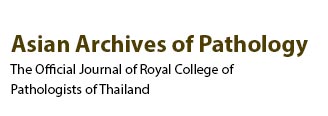[P-30] Impact of convalescent plasmatherapy on patient outcome in patients of COVID-19: a six-month analysis
Tanvi Jha, Akanksha Agrawal, Priyanka Gogoi and Preeti Diwaker
Department of Pathology, University College of Medical Sciences and GTB Hospital, Delhi
Background and Objectives: The role of plasmatherapy in the management of the current COVID-19 pandemic has been speculated. However, in view of the varied response regarding its effectiveness from various multicentre studies, there is a need to conduct more single-centre population-specific studies. We, thus, aimed to assess the effectiveness of convalescent plasmatherapy in COVID-19 patients in a single dedicated COVID-19 care centre.
Materials and Methods: This retrospective cross-sectional study was conducted using records of all COVID-19 patients who received plasmatherapy over a period of 6 months in a dedicated COVID hospital in Delhi. Information pertaining to transfusion, disease severity, associated comorbidities, the treatment used and treatment outcome were recorded. Data was analysed using SPSSv23.
Results: Out of 141 patients who received plasma therapy, 62% died. Mortality was found to be significantly higher in patients > 60 years of age (p < 0.001), those with severe COVID-19 infection (p < 0.050) and pre-existing renal disease (p < 0.050) compared to younger, moderately-ill patients with no comorbidities. The admission-transfusion interval was significantly correlated to mortality and was found to be a sensitive parameter for predicting outcome at cut-off value of < 5 days (p < 0.001). There was no significant association of mortality with patient blood group, plasma antibody levels or donor haemoglobin levels.
Conclusion: Plasma therapy can, thus, be considered as an adjuvant treatment modality, especially when administered at admission, in patients with moderate COVID-19 infections. Further, assessment of admission transfusion interval may be used for outcome prediction in these patients.


